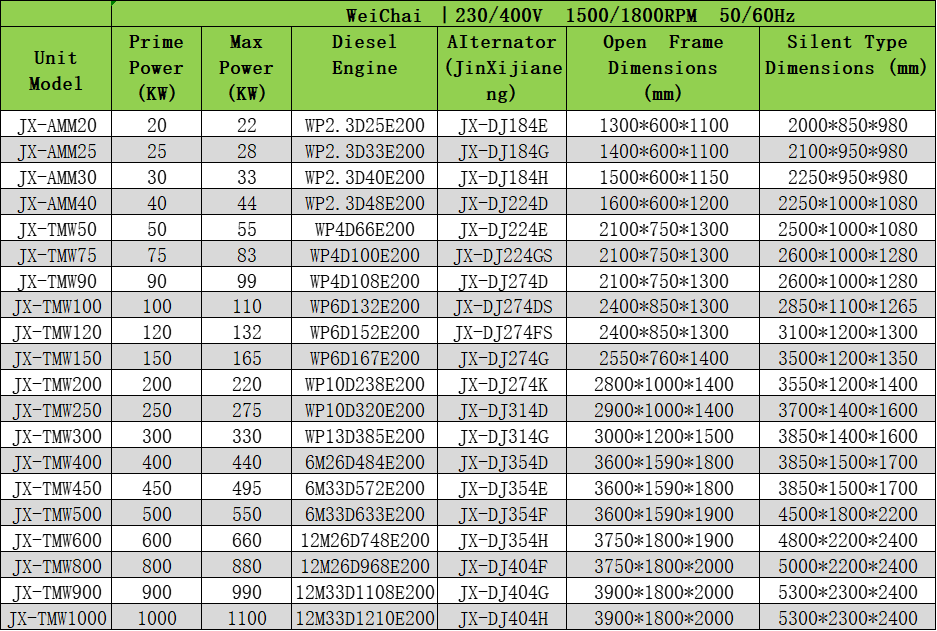

Power range: 400-500KW
Here is the English translation of the diesel generator core components description, formatted as a concise technical introduction:
Core Components of a Diesel Generator:
Diesel Engine: The prime mover. Draws in air, compresses it, injects atomized diesel fuel, ignites it via compression to produce high-temperature, high-pressure gas that drives the pistons, outputting rotational mechanical energy.
Alternator (AC Generator): Converts the engine's rotational mechanical energy into electrical energy (typically 230V/400V three-phase AC or single-phase AC). Its core components are the rotor and stator, operating on the principle of electromagnetic induction.
Control System:
Control Panel: Provides the operator interface (Start/Stop buttons), displays key parameters (Voltage, Current, Frequency, RPM, Run Hours, Fault Indicators), and incorporates protection functions (Over-voltage, Under-voltage, Over-frequency, Under-frequency, Over-current, Overspeed, Low Oil Pressure, High Coolant Temperature, etc.).
Automatic Control Module: (Optional, common for standby sets) Monitors mains power (utility supply). Automatically starts the generator upon mains failure, transfers the load after stabilization, and automatically transfers back to mains & shuts down the generator upon mains restoration.
Cooling System: Typically a closed-loop water cooling system comprising a radiator and fan to dissipate engine heat. Some small units may use air cooling.
Fuel System: Includes the fuel tank (integrated or external), fuel filters, fuel transfer pump, fuel injection pump, and injectors. Responsible for supplying clean diesel fuel to the engine.
Lubrication System: Consists of the oil pump, oil filters, and oil galleries/passages. Provides lubrication and cooling for the engine's moving parts.
Starting System: Electric start (most common, using a battery and starter motor) or manual start.
Exhaust System: Includes a silencer (muffler) to reduce engine exhaust noise and direct exhaust gases away.
Base Frame/Chassis: Supports and mounts all components, typically incorporating vibration dampeners to reduce operational vibration and noise transmission.
Battery: Supplies power to the starter motor and control circuits.
